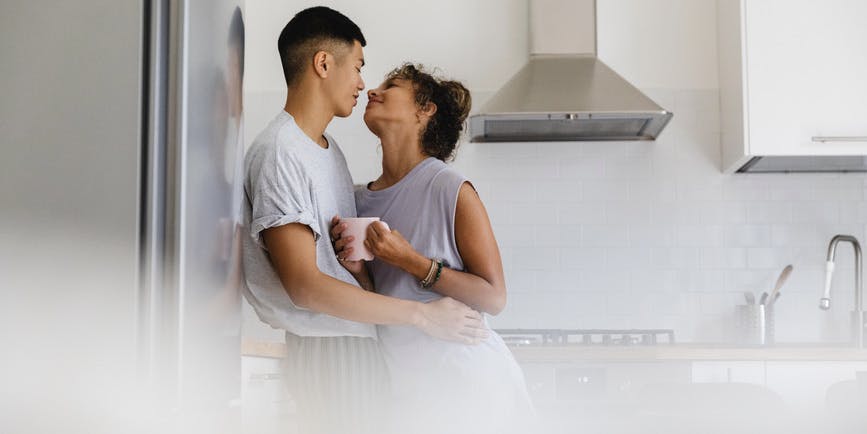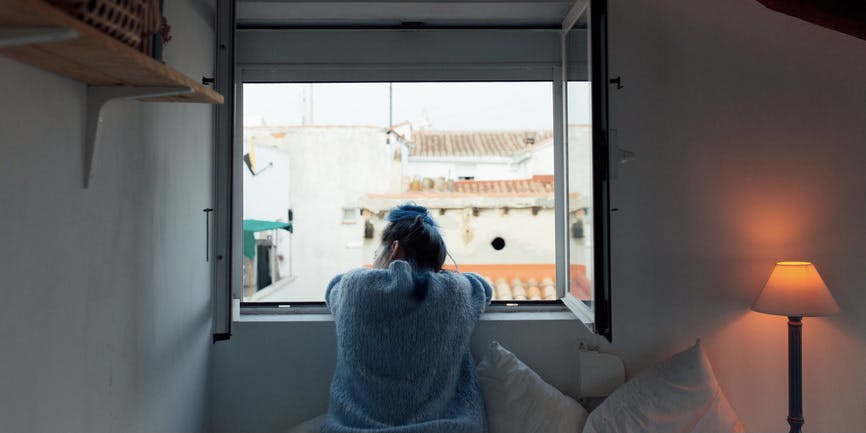
Better sex, calmer stress and vital Covid news to know.
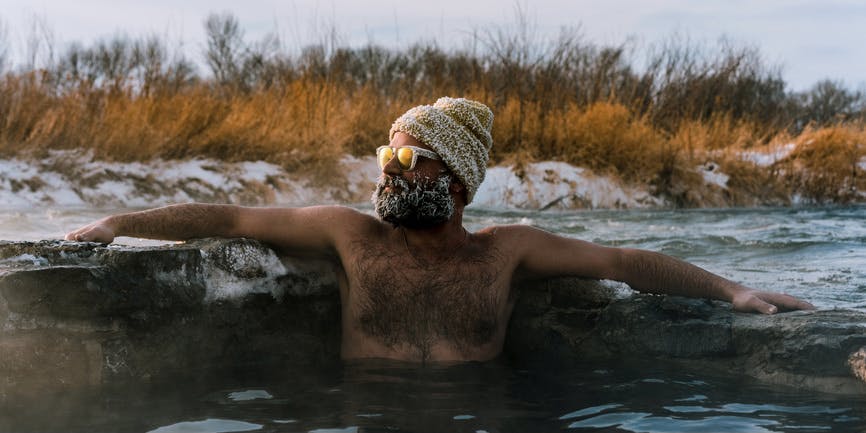
We’re not here to make your mind, body or spirit feel overwhelmed. So this week’s newsletter isn’t packed with resolution to-do lists or motivation for massive change.
Instead, we’re sharing nuanced approaches to habit shifts around managing stress, having better sex + lightening your relationship with social media.
And because we’re still living with and learning about Covid-19 in real-time, we close with an all-Covid healthcare update: How long are you safe (unmasked) around an infected person? What symptoms should have you heading to the ER? And what do we know about long Covid today?
- The Checkup: (dry) January fun + games
- S-S-S: how to do better by yourself
- Healthcare: Covid, Covid + more Covid
The Checkup
- Here’s why Christina Applegate got a standing O at the Emmys
- A moving essay about how everything is resolved by walking
- The future of “the potato is a vegetable” is up for debate
- Dry January flagging? Here’s why booze + exercise don’t mix
- Ew! What happens when you don’t clean your water bottle?!
- When you’re always so tired, here’s how to stay a good friend
- Meet the performer who masterfully performed Barbie in ASL
- Mushrooms are good for you! Here are 34 ways to cook them
Less stress
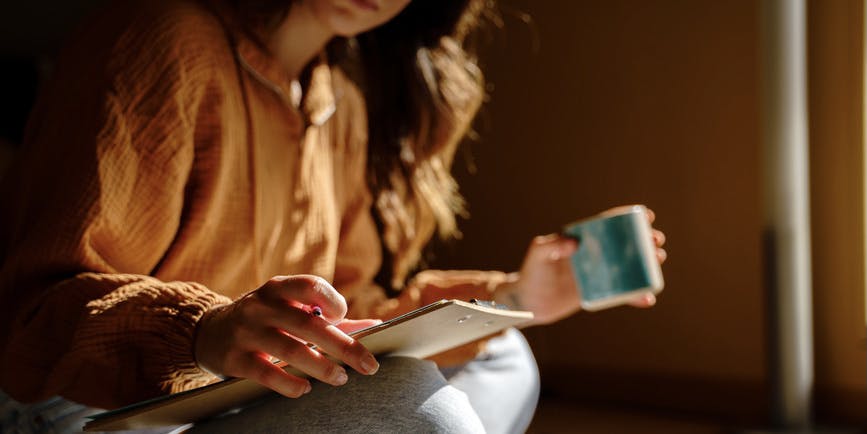
25% of us are experiencing high levels of stress right now. That’s about 5% more than in 2019. To help relieve chronic stress in the long term, here’s a 5-point guide from physician + researcher Aditi Nerurkar. Head to NPR for details + bonus tips.
Slow the stream. When stressed, our brain’s amygdala thrusts our heart, lungs + blood vessels into fight or flight mode. But most modern-day stressors don’t need us to always be on guard. To transition yourself into resilience mode, first articulate what really matters about the thing stressing you out. Then move forward making calmer choices from there.
Stop the scroll. We touch our phones around 2,000+ times a day—and the stimulation encourages stress. More on this below. But check yourself!
Calm mind + body. Before you enter a room or start a new task, calm stress with this trick: Physically pause. Take a deep breath. Be present. Then move forward.
Focus. Only 2% of us can multitask. The rest of us are getting less done—and we're more stressed for the attempt! Instead, try monotasking—doing one thing at a time—and take short breaks between tasks. Feel lighter?
Quiet the critic. Our brain remembers mistakes so we don't repeat them—but we often beat ourselves up mentally as a result. Instead, try gratitude journaling. Or pretend that inner critic is someone who loves you, like a good friend or family member. How does that conversation change?
Better sex

Sex can encourage cardiovascular health + decrease pain. The Self team reminds us that better sex can pump up our mental health goals, too.
To get started, try incorporating touch + clothing into your next foray. Keep a sexy journal. Flirt more. Or try something new (like keeping the lights on) for emotional liberation. Their 24 tips are too saucy to reveal in full. So head to the story for more. And if you're not prepared for safe sex...
Dr. B offers birth control online! Start a $15 consultation to get same-day prescription birth control sent to your chosen pharmacy.
Sans social media
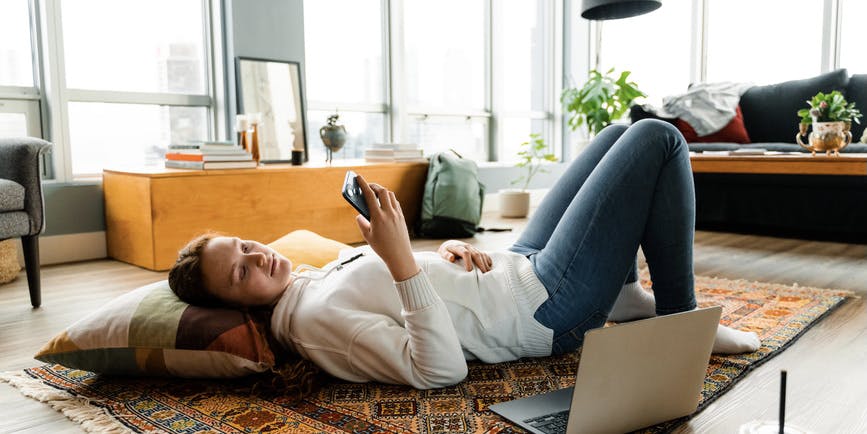
We’d wager you already know that excessive social media use contributes to depressive symptoms, loneliness, poor self-esteem + more. If you’re ready to break up with your feeds—or at least cut your dependence on them—this Time article teems with expert tips.
Practical advice includes making it harder to access addictive apps + unfollowing accounts that make you feel icky. Mental-emotional tips include journaling or taking a social sabbatical to determine what or who triggers those bad feelings. There’s positive stuff, too, like curating your feeds with accounts that make life easier.
Read the article for some superior couples counseling.
Healthcare 411
How long does it take to get Covid-19? (Time). A new study shows it takes around 30 unmasked minutes with an infected person to get Covid-19. Prior studies estimated risk at 15 minutes. 10% of study participants got infected in under 30 minutes—so risk remains. But 80% were safe until the 60-minute mark. The study occurred during earlier Omicron variants + current variants are more transmissible. So watch the clock + mask up.
These Covid symptoms are red flags that you need medical attention (HuffPo). Get medical care if you have high fever, dizziness, confusion or breathing issues. Blue lips, chest pain or low oxygen levels are signs to head to the ER. If you’re at high risk for severe illness, talk to a provider ASAP—no matter your physical symptoms. They can monitor progress + prescribe Paxlovid to reduce hospitalization risk.
Here’s more from Dr. B on the cost of Paxlovid. To get a same-day Paxlovid prescription online, start a $15 Covid treatment consultation.
Long Covid research roundup (YLE). Inadequate research aside, long Covid cases have lowered since severe infections reduced in 2022—but risk persists. In adults, vaccination lowers risk by about 20% for one dose, 60% for two doses and 75% for three or more. Research on Paxlovid’s affect on long Covid is mixed. Treatment options may be on the horizon—but exercise is not recommended, as it can cause cell death in muscles.
Sign up for the free Dr. B newsletter for a weekly report on the latest in healthcare + research-based advice for staying healthy and mentally well.
